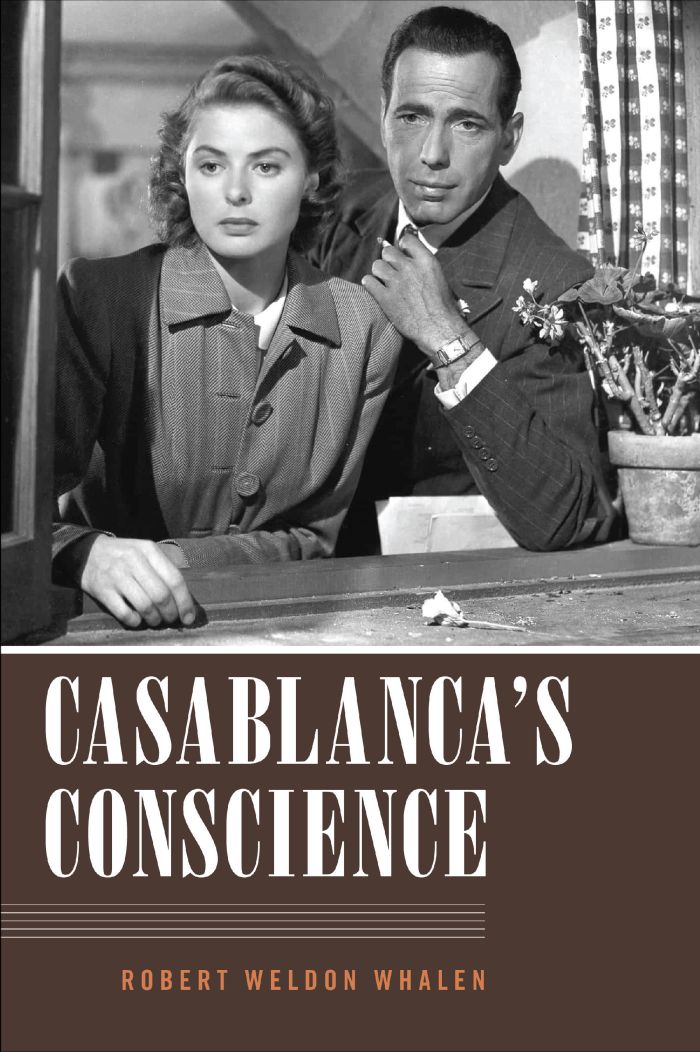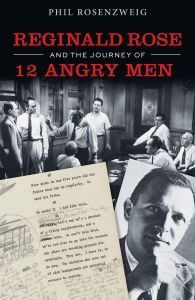Casablanca's Conscience

This book can be opened with

A new look at a beloved classic film that explores the philosophical dynamics of Casablanca
Celebrating its eightieth anniversary this year, Casablanca remains one of the world’s most enduringly favorite movies. It won three Academy Awards for Best Picture, Best Director, and Best Adapted Screenplay. It is still commonly quoted: “We’ll always have Paris” and “Here’s looking at you, kid” And who can forget, “You must remember this…a kiss is just a kiss.” Yet no one expected much to come of this little film, certainly not its blockbuster stars or even the studio producing it. So how did this hastily cranked-out 1940s film, despite its many limitations, become one of the greatest films ever made? How is it that year after year, decade after decade, it continues to appear in the lists of the greatest movies ever produced? And why do audiences still weep when Rick and Ilsa part? The answer, according to Casablanca’s Conscience, is to paraphrase Rick, “It’s true.”
Much has already been written about the film and the career-defining performances of Bogart and Bergman. Casablanca is an epic tale of love, betrayal, and sacrifice set against the backdrop of World War II. Yet decades later, it continues to capture the imagination of filmgoers. In Casablanca’s Conscience, author Robert Weldon Whalen explains why it still resonates so deeply. Applying a new lens to an old classic, Whalen focuses on the film’s timeless themes—Exile, Purgatory, Irony, Love, Resistance, and Memory. He then engages the fictional characters—Rick, Ilsa, and the others—against the philosophical and theological discourse of their real contemporaries, Hannah Arendt, Dietrich Bonhoeffer, and Albert Camus. The relationships between fictional and historical persons illuminate both the film’s era as well as perennial human concerns. Both the film and the work of the philosophers explore dimensions of the human experience, which, while extreme, are familiar to everyone. It’s the themes that resonate with the viewer, that have sustained it as an evergreen classic all these years.
Whalen offers a fresh, innovative, and thoroughly readable approach to what many regard as the ultimate holy grail of Classical Hollywood. He reevaluates Casablanca against the illuminating, eye-opening backdrop of philosophical and theological discourse in the writings of Hannah Arendt, Dietrich Bonhoeffer, and Albert Camus. Readers are bound to discover plenty of new ideas amid the book’s far-reaching, trenchant insights.—Noah Isenberg, author of We’ll Always Have ‘Casablanca’: The Life, Legend, and Afterlife of Hollywood’s Most Beloved Movie
Whalen gives readers with an opportunity to revisit a multilayered film and arms them with insights from varied philosophical perspectives.—Library Journal
Robert Weldon Whalen is Professor Emeritus of History at Queens University of Charlotte. His publications include Murder, Inc., and the Moral Life: Gangsters and Gangbusters in La Guardia’s New York (Fordham); Sacred Spring: God and Modernism in Fin-de-Siècle Vienna; “Like Fire in Broomstraw”: Southern Journalism and the Textile Strikes of 1929–1931; Assassinating Hitler: Ethics and Resistance in Nazi Germany; and Bitter Wounds: German Victims of the Great War.
Prologue: Everybody Comes to Rick’s | 1
1 Exile | 13
2 Purgatory | 27
3 Irony | 44
4 Love | 56
5 Resistance | 78
Epilogue: You Must Remember This | 95
Acknowledgments | 105
Notes | 107
Bibliography | 127
Index | 137




